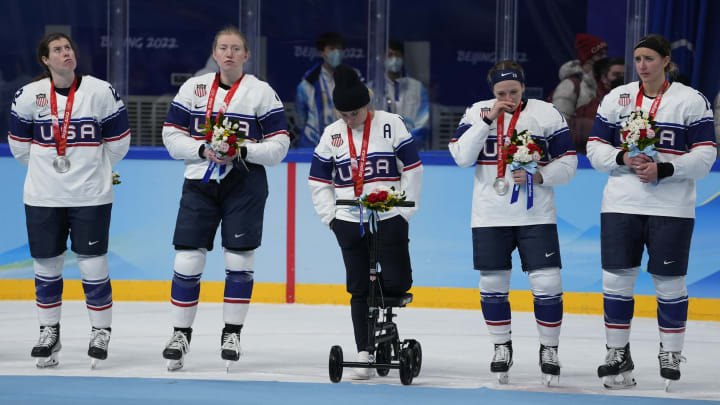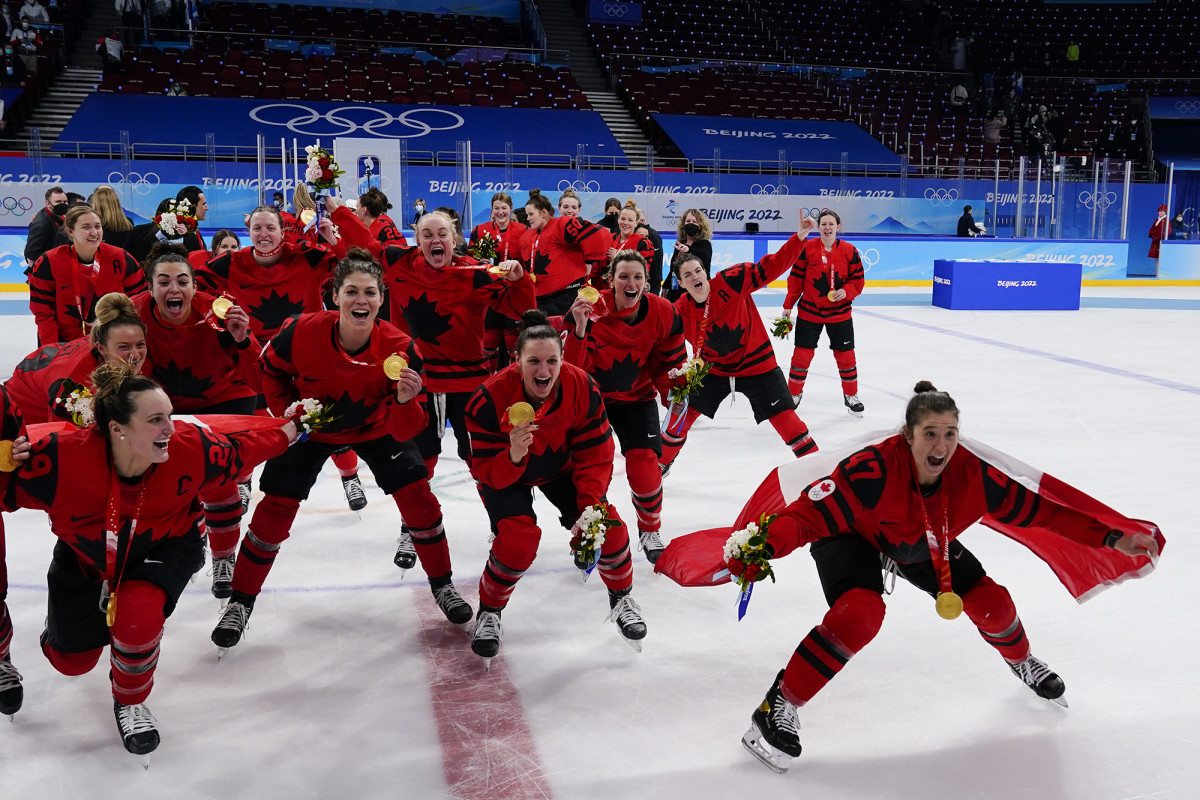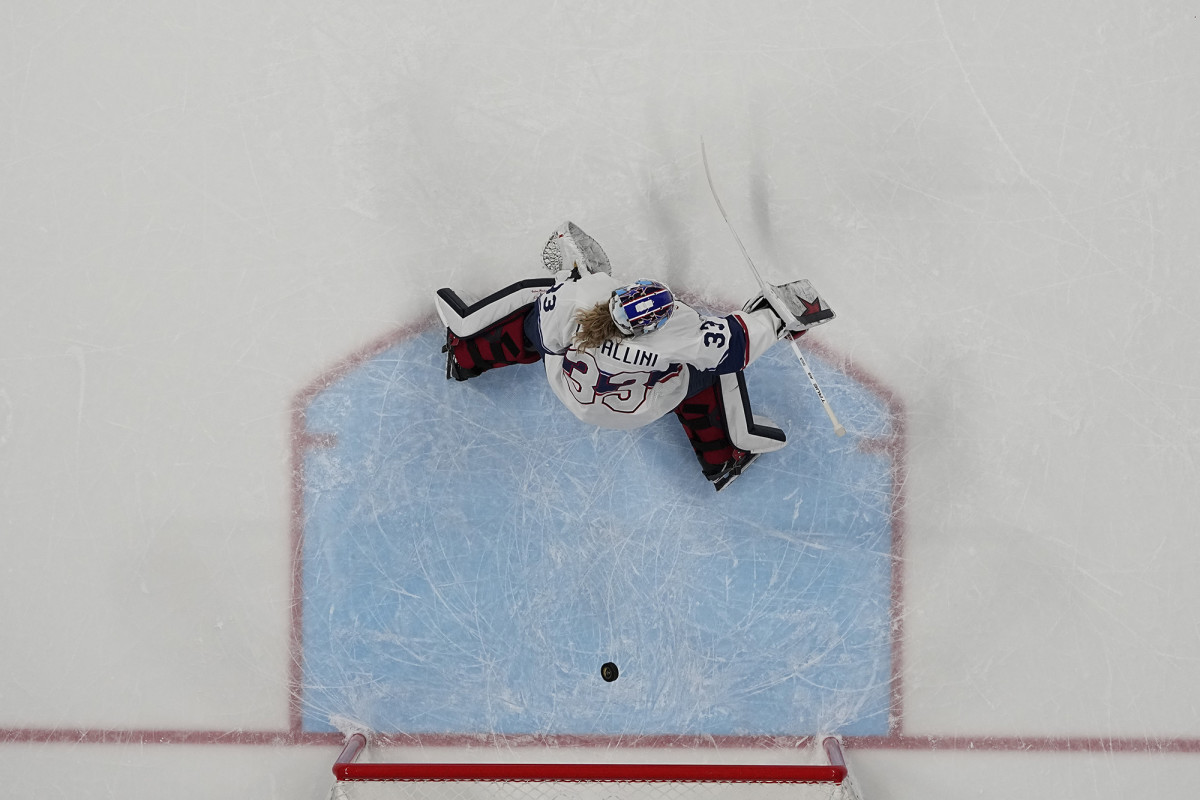Team USA Settles for Silver, But Won’t Stop Fighting for the Future of Women's Hockey

BEIJING — When it was over, when another edition of the fiercest and most frenetic rivalry at these (or any) 2022 Winter Olympics was filed away in the history books, the misty-eyed, muscle-sapped players of the United States women’s hockey team waited.
They waited as the Canadian bench emptied, sticks and gloves flying and falling to the ice like confetti. They waited as Wukesong Sports Centre filled with sporadic cheers of LET’S GO CANADA, as a maple leaf flag was fetched and flapped in joy. They waited for 5, 10, 15 minutes, some standing, some kneeling, some unable watch, some unable to look away.
They hugged, they cried, they consoled one another before waiting some more.

Finally a carpet was unfurled around the edge of the rink, followed by trays of medals and bouquets of flowers. “O Canada” came on over the loudspeakers, the Canadians crooned along and later, Hilary Knight and her teammates trudged through the mixed zone to attempt to encapsulate how Thursday afternoon’s 3-2 defeat—their third in the past six Olympic finals by that exact score, against this exact team, with the stakes sky-high as always—felt.
“It's devastating,” Knight said. “It’s heartbreaking. To come up short, it's tough. It definitely stings. It hurts. It feels like you let our country down. But the takeaway is the level of fight and the character that we have in the room to continue to try to drive and push the pace.”
As is personally the case with Knight, the goal-scoring, penalty-killing heart of Team USA, this last sentence works two ways. For starters, fight and character were plenty evident as the defending champions rallied from a 3-0 hole thanks to a shorthanded strike from Knight late in the second period and forward Amanda Kessel’s six-on-four tally with 12.5 seconds left. They could’ve easily folded against juggernaut Canada, which entered having already set the single-Olympic scoring record with 56 goals and exited with five of seven members of the all-tournament team, including MVP Brianne Jenner. Instead they authored another instant classic.
“I don't think anyone gave up,” Kessel said. “We thought we had a chance the entire game.”

But what Knight was truly talking about is bigger than just one game, one medal, one Olympics. It is about a sport still looking for a sustainable league that pays them livable wages. It is about skaters on both sides of the border banding together to form the Professional Women’s Hockey Players Association in the hunt for equality. It is about U.S. captain Kendall Coyne Schofield choking up and breaking down while speaking to reporters—and not because her squad failed to beat Canadian goalie Ann-Renee Desbiens more than twice on 40 shots.
“I know there’s a lot of young girls watching back home, and I hope women’s hockey cannot be silent after these two weeks,” Coyne Schofield said. “They need to be able to see themselves in us, and it can’t be silent. It can’t not be visible because it’s not the Olympic Games. We need to continue to push for visibility, we need to continue to fight for women’s hockey, because it’s not good enough. It can’t end after the Olympic Games.”
Despite plenty of bad-faith hand-wringing over the yawning—yet nonetheless shrinking—gap between them and the rest of the world, the road for both North American teams was hardly posh. Canada suffered through five straight U.S. victories at the world championship, leading to what Jenner described as “a lot of soul searching” within the program, before captain Marie-Philip Poulin stepped up to deliver the title-clinching goals at both the 2021 worlds and the Beijing Olympics. “We call her Captain Clutch for a reason,” forward Natalie Spooner said.

The U.S., meanwhile, lost star center Brianna Decker to a broken leg during the preliminary opener against Finland and later goaltending coach Steve Thompson to COVID quarantine in Beijing. On top of that, netminder Alex Cavallini, who started and made 18 saves against Canada, suffered a torn MCL in mid-January and didn’t get a full on-ice workout in until the third practice here. “Didn’t know if I was going to make it on the flight here,” she said. “Didn’t know I was going to get a start or not. Didn’t feel 100% until we got to the medal round.”
“That’s the amazing part—there was a lot of adversity,” Kessel added. “A handful of us that almost didn’t make it over because of COVID, then our goaltender’s out, then to lose your top player, if not one of the best in the world. We did our best to try to come together, and I’m proud of our team for sticking together through it all.”
The same could be said about the players on whose backs the future of the game will be built. The U.S. must wait another four years to get another crack at Canada on the Olympic stage.
Here’s to hoping the wait is much shorter for women’s hockey to get what it deserves.
More Olympics Coverage:
• It's Time to Raise the Age Minimum in Figure Skating
• Regardless of His Results in Beijing, Gus Kenworthy’s Legacy Is Already Set
• 'Nobody Likes Being Cold': Winter Olympians Who Hate the Winter
• Aerial Skiers Must Overcome Surprising Fear of Heights to Win Big
